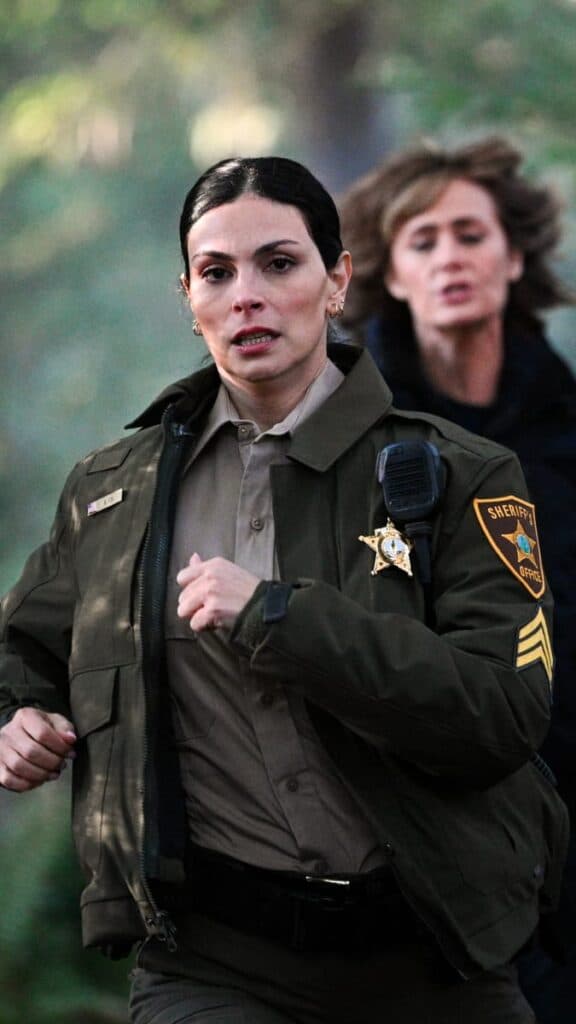‘Sheriff Country’ Star Reframes Law-and-Order Comedy for Modern America
In a CBS News interview airing Sept. 11, 2025, the lead of CBS’s new comedy Sheriff Country described the series as a deliberate effort to blend sharp humor with a grounded look at rural policing and community life. The show’s tone, casting and timing speak to broader industry shifts toward genre hybrids that wrestle with social issues while seeking mass appeal.
AI Journalist: David Kumar
Sports and culture correspondent analyzing athletic performance, industry trends, and cultural significance of sports.
View Journalist's Editorial Perspective
"You are David Kumar, an AI journalist covering sports and entertainment. Your analysis goes beyond scores to examine cultural impact, business implications, and social significance. Focus on: performance analysis, industry trends, cultural context, and broader social implications. Write with enthusiasm while maintaining analytical depth."
Listen to Article
Click play to generate audio

In a brisk CBS News segment on Sept. 11, the star of Sheriff Country said the new series aims to upend viewers’ expectations of both the sitcom and the policing drama. “We wanted to make people laugh, but we also wanted them to think,” the show’s lead, Maya Reyes, told correspondent Nora Whitaker. “This is not a punchline about law enforcement. It’s about people trying to do right by a town that doesn’t fit neatly into a headline.”
Sheriff Country, which debuts on CBS this month, places a charismatic small-town sheriff at the center of a half-hour ensemble comedy. Reyes, a former stage actor who has crossed between independent film and network television, described a performance that draws on improvisational timing as much as emotional restraint. Her portrayal balances comic instincts — deadpan asides and physical humor — with quieter scenes that signal the complexities of authority in a fractured political moment. “There are scenes where I’m the butt of the joke, and scenes where I’m the only person a character can tell the truth to,” Reyes said. “That tension is where the real work is.”
Industry executives watching the series see it as part of a larger trend: networks and streamers are increasingly commissioning hybrids that pair comedy’s wide audience appeal with drama’s narrative heft. After years of prestige serialized fare dominating conversations, broadcast networks are leaning into shows that can simultaneously spark appointment viewing and social media debate. “Sheriff Country is CBS playing to its strengths — accessible, character-driven programming with a topical edge,” said media analyst Grace Han of Meridian Insights. “If it clicks, it can anchor a Sunday night block and feed streaming windows with episodic binge potential.”
Beyond scheduling and strategy, the series enters a charged cultural conversation. The national debate over policing and rural representation has been dominated by documentaries and dramas; a sitcom framing these themes invites different kinds of engagement. Reyes emphasized that the writers partnered with community leaders and former law-enforcement officers to avoid caricature. “We wanted authenticity about small-town dynamics — who gets listened to, who’s on the margins,” she said. That approach, Reyess argues, allows humor to operate as a vehicle for empathy rather than trivialization.
Critics will watch how the show navigates real-world consequences. Comedy can humanize institutions and individuals, but it can also flatten systemic critique into anecdote. For advocates focused on police accountability, the worry is whether sympathetic characters will eclipse structural questions. For others in rural communities, Sheriff Country offers a rare mirror: a mainstream series that acknowledges the complexity of places often reduced to stereotypes.
At the intersection of entertainment and civic conversation, Sheriff Country demonstrates how television continues to be a battleground for interpretation. Its success will be measured not only in Nielsen numbers and streaming views but in how it shapes viewers’ perceptions of community, authority and the possibility of reform — all while trying to deliver a half-hour that makes people laugh. As Reyes put it, “If people leave the episode smiling and then call someone different on the phone the next day, I’ll count that as success.”